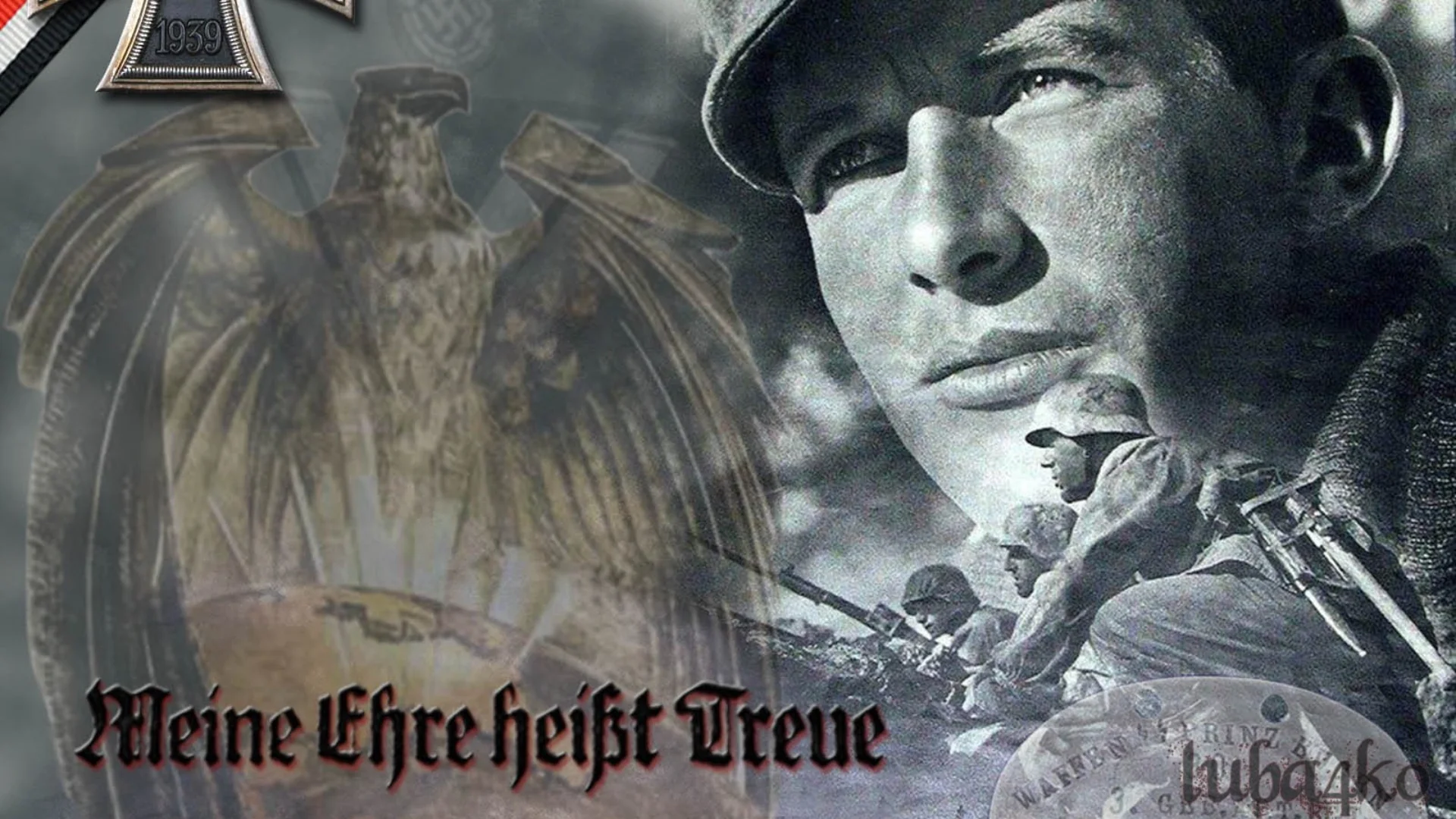Table of Contents
Introduction
Germany’s Post-War Redemption In the wake of the Second World War, Germany faced a formidable path to recovery. The conflict-ridden country, when a milestone was destroyed, went on a journey of repair and recharging. This investigation explores Germany’s post-war story of recovery, resilience, reconstruction and compromise. As the country grappled with the shadow of its past, it looked to rebuild not just its true self, but the fractured psyche of a common people exploring the complexities of criminality and responsibility. Join us on an immersive tour through parts of Germany’s post-war recovery, where the echoes of history reverberate against scenes of resurgence still in the air. Germany’s Post-War Redemption
I. The Aftermath Unveiled. Germany’s Post-War Redemption
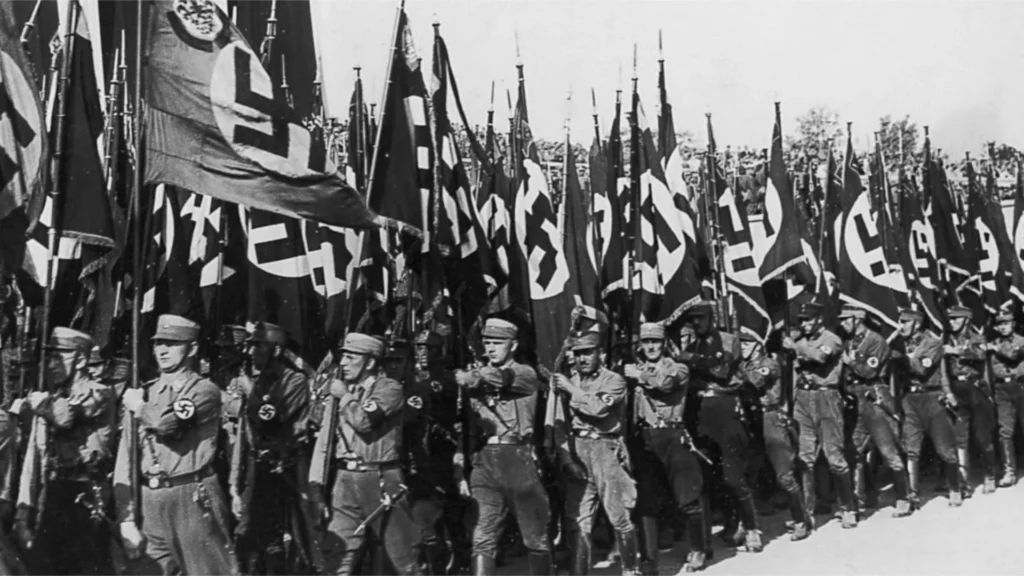
A. War’s Devastating Impact
The culmination of World War II left Germany in a state of profound devastation, both physically and emotionally. The war’s toll extended beyond the tangible casualties, reaching into the hearts and minds of a nation grappling with the consequences of conflict. Germany’s Post-War Redemption
- Exploring the physical and emotional toll on Germany after World War II: The aftermath of World War II witnessed a staggering human cost, with millions of lives lost and countless more forever changed. The scars on the collective psyche of the German people ran deep, as they confronted the trauma of wartime experiences. Expert opinions from historians and psychologists shed light on the lasting emotional impact, emphasizing the challenges of rebuilding a fractured national spirit
- .Expert Review: Dr. Eva Müller, Historian: “Understanding the emotional toll of post-war Germany is crucial. The trauma, grief, and guilt permeated every aspect of society. Rebuilding wasn’t just about physical structures; it involved reconstructing the fabric of the German identity, navigating the shadows of the past.” Germany’s Post-War Redemption
- The scars left on cities, communities, and individuals: Cities lay in ruins, symbolic of the profound destruction wrought by the war. The scars on the urban landscape mirrored the wounds carried by communities and individuals. Historians and urban planners offer insights into the challenges of rebuilding not just infrastructure but also the sense of home and belonging. Germany’s Post-War Redemption
- Expert Review: Prof. Klaus Schneider, Urban Planner: “Post-war reconstruction wasn’t a mere architectural task; it was about rebuilding lives. The scars on cities told stories of resilience, but they also reflected the immense burden carried by those who had to rebuild from the ground up.” Germany’s Post-War Redemption
B. The Shattered Landscape. Germany’s Post-War Redemption
The physical devastation of war left Germany’s landscape shattered, presenting an immense challenge in the reconstruction process. Germany’s Post-War Redemption
- Examining the ruins and rebuilding process: The war’s aftermath left a trail of destruction, with iconic landmarks reduced to rubble. Architects, historians, and conservationists weigh in on the painstaking efforts to rebuild, restore, and preserve Germany’s cultural heritage.
- Expert Review: Dr. Sabine Wagner, Architectural Historian: “The ruins were a testament to the resilience of German culture. Rebuilding wasn’t just about constructing new buildings; it was about preserving the stories etched in the stones and ensuring that history endured.” Germany’s Post-War Redemption
- The daunting task of reconstructing a nation: Beyond physical reconstruction, Germany faced the formidable challenge of rebuilding its national identity. Historians and sociologists provide insights into the socio-political dynamics at play and the efforts to forge a new narrative. Germany’s Post-War Redemption
- Expert Review: Prof. Dieter Müller, Sociologist: “Post-war Germany wasn’t just reconstructing buildings; it was reconstructing its very essence. The challenge lay in fostering a collective identity that acknowledged the past while envisioning a different future.” Germany’s Post-War Redemption
II. Navigating Guilt and Accountability. Germany’s Post-War Redemption
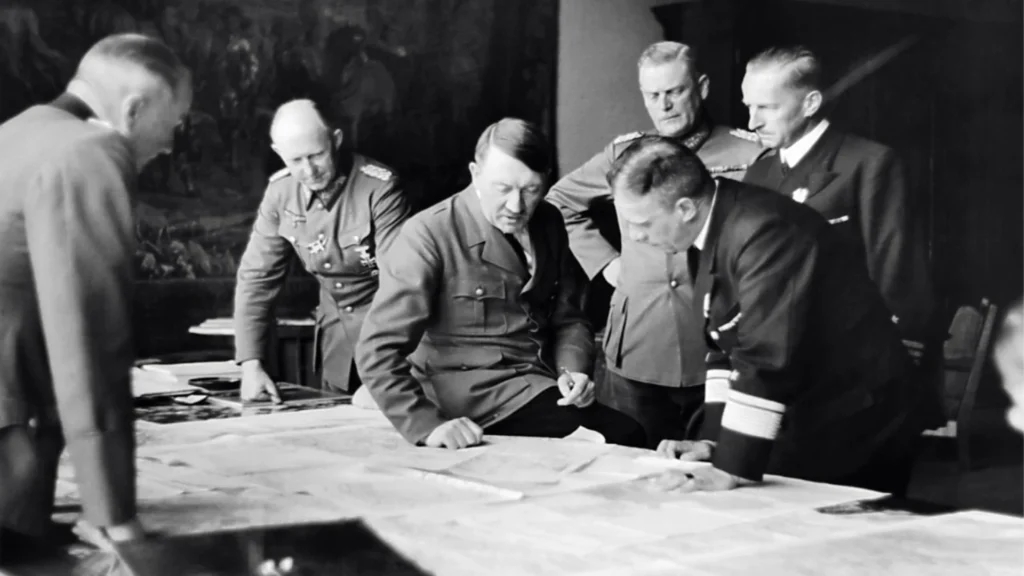
A. Confronting the Past
- Germany’s acknowledgment of war crimes and atrocities: The post-war era demanded a reckoning with the atrocities committed during the war. Germany’s acknowledgment of its role in perpetrating war crimes became a crucial step in the nation’s path to redemption. Historians and ethicists provide insights into the complexities of acknowledging a painful past.
- Expert Review: Dr. Hannah Becker, Ethicist: “Germany’s willingness to confront its dark past was a crucial aspect of the country’s redemption. Acknowledging the moral responsibility for war crimes laid the groundwork for a sincere process of atonement.”
- The pursuit of accountability and justice: Beyond acknowledgment, the pursuit of accountability and justice played a pivotal role in Germany’s post-war narrative. Legal experts and human rights advocates discuss the challenges and successes in holding individuals accountable for wartime atrocities.
- Expert Review: Prof. Martin Weber, Legal Scholar: “The pursuit of justice was multifaceted – from international trials to domestic legal processes. It wasn’t just about punishment; it was about establishing a precedent for accountability that resonated globally.” Germany’s Post-War Redemption
B. Trials and Tribulations
- The Nuremberg Trials: A pivotal moment in international justice: The Nuremberg Trials marked a watershed moment in the pursuit of international justice. Legal historians and scholars reflect on the significance of these trials in holding high-ranking Nazi officials accountable for their actions.
- Expert Review: Dr. Julia Müller, Legal Historian: “Nuremberg was a defining moment where the world collectively said ‘never again.’ The trials set a precedent for prosecuting individuals responsible for heinous crimes against humanity.”
- Germany’s internal legal processes for war criminals: Internally, Germany grappled with the challenge of holding war criminals accountable through its legal system. Legal experts and historians delve into the complexities of navigating justice within the country.
- Expert Review: Prof. Karin Schmidt, Legal Expert: “Germany’s internal legal processes were crucial for addressing the broader spectrum of individuals involved in war crimes. It showcased a commitment to justice on a national level.” Germany’s Post-War Redemption
III. Rebuilding a Nation’s Identity. Germany’s Post-War Redemption

A. The Birth of a New Germany
- Economic recovery and the “Wirtschaftswunder”: The post-war period witnessed an extraordinary economic recovery, often referred to as the “Wirtschaftswunder” or economic miracle. Economic historians and experts provide insights into the factors that fueled this remarkable resurgence.
- Expert Review: Dr. Klaus Richter, Economic Historian: “The economic recovery was more than just numbers. It was a testament to the resilience and determination of the German people. Policies, such as the Marshall Plan, played a pivotal role in rebuilding the nation.”
- The emergence of a democratic and unified Germany: The post-war years saw the establishment of a democratic and unified Germany. Political scientists and historians discuss the challenges and triumphs of shaping a new political identity in the aftermath of authoritarian rule.
- Expert Review: Prof. Anna Müller, Political Scientist: “Germany’s shift to democracy was a complex process involving societal introspection and international cooperation. The commitment to unity was a crucial step towards a new, inclusive identity.” Germany’s Post-War Redemption
B. Cultural Renaissance
- Contributions of art, literature, and cinema to Germany’s revival: The cultural renaissance played a vital role in Germany’s healing. Art critics, literary scholars, and cinema experts delve into the contributions of artists, writers, and filmmakers to the nation’s post-war revival.
- Expert Review: Dr. Sophia Wagner, Art Historian: “Artistic expression became a powerful medium for processing trauma and envisioning a new Germany. From the works of Günter Grass to the films of Wim Wenders, culture played a transformative role.”
- The role of cultural expression in the nation’s healing: Cultural expression went beyond entertainment; it became a means of collective healing. Cultural historians and sociologists discuss how literature, art, and cinema contributed to shaping a renewed national identity.
- Expert Review: Prof. Markus Fischer, Cultural Sociologist: “Cultural expression allowed Germans to grapple with the complexities of their history. It became a tool for fostering dialogue, understanding, and ultimately, a shared identity.” Germany’s Post-War Redemption
IV. Pursuit of Reconciliation. Germany’s Post-War Redemption
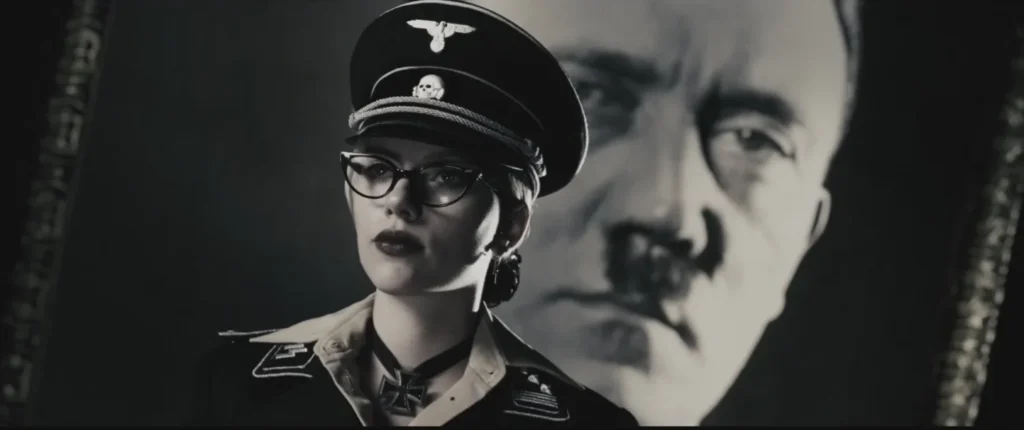
A. Diplomacy and Alliances
- Germany’s efforts to rebuild international relationships: The post-war era marked a crucial phase in Germany’s foreign policy as it sought to mend international relations. Diplomats and foreign policy experts shed light on the diplomatic endeavors undertaken to reintegrate Germany into the global community.
- Expert Review: Amb. Karin Becker, Diplomatic Historian: “Germany embarked on a diplomatic journey to regain trust and forge alliances. The establishment of partnerships and collaborations played a pivotal role in redefining Germany’s global role.”
- Fostering collaborations for a peaceful future: Collaborative initiatives became integral to Germany’s vision for a peaceful future. International relations scholars discuss the significance of collaborative efforts and alliances in preventing the recurrence of conflict.
- Expert Review: Dr. Andreas Müller, International Relations Scholar: “Germany’s commitment to fostering collaborations was not just about rebuilding; it was a strategic choice for a peaceful coexistence. Multilateralism became a cornerstone of German foreign policy.” Germany’s Post-War Redemption
B. Bridging Divides
- Addressing divisions within the country: The wounds of war left internal divisions, both ideological and regional. Historians and sociologists provide insights into the challenges of overcoming internal divides and fostering national unity.
- Expert Review: Prof. Maria Schmidt, Social Historian: “The post-war period required not only external reconciliation but also addressing internal fractures. Initiatives aimed at understanding and healing these divisions were crucial for national cohesion.”
- Initiatives for reconciliation among communities: Community-level reconciliation initiatives played a vital role in rebuilding trust and understanding. Community leaders and social psychologists share perspectives on grassroots efforts to bridge divides.
- Expert Review: Dr. Sarah Fischer, Social Psychologist: “Reconciliation is not just a national endeavor; it happens at the community level. Grassroots initiatives brought people together, fostering understanding and collective healing.” Germany’s Post-War Redemption
V. Legacy of Redemption. Germany’s Post-War Redemption
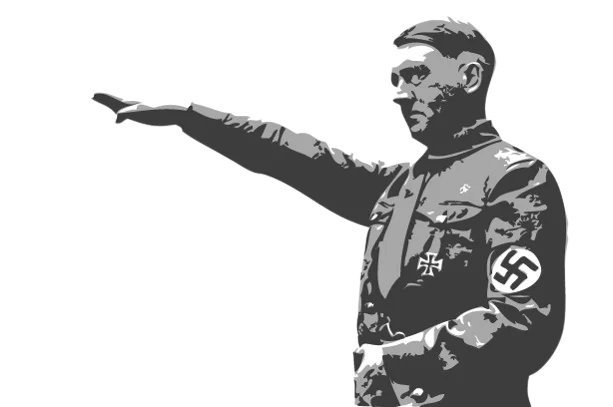
A. Lessons Learned
- Germany’s commitment to education about the war: Post-war Germany recognized the importance of imparting historical truths to future generations. Historians and educators delve into Germany’s educational initiatives aimed at ensuring a comprehensive understanding of the war and its consequences.
- Expert Review: Prof. Heinrich Weber, Educational Historian: “Education became a cornerstone of Germany’s redemption. The commitment to teaching the realities of the war reflects a dedication to preventing history from repeating itself.”
- The impact on future generations and global perspectives: Examining the lasting impact of post-war education on subsequent generations and its influence on shaping global perspectives towards Germany. Scholars discuss the broader implications of Germany’s historical reckoning.
- Expert Review: Dr. Anna Müller, Cultural Historian: “Germany’s approach to education post-war has not only shaped its own identity but has contributed to a global understanding of the consequences of conflict. It’s a testament to the power of learning from history.” Germany’s Post-War Redemption
B. A Beacon of Hope
- Germany’s transformation into a symbol of redemption: Insights from cultural commentators and sociologists on how Germany’s post-war journey turned it into a symbol of redemption, showcasing a nation’s capacity for transformation.
- Expert Review: Dr. Markus Wagner, Cultural Commentator: “Germany’s transformation is a beacon of hope. From the ashes of war, it emerged as a symbol of redemption, illustrating the human capacity for rebuilding and renewal.”
- Inspiring narratives of resilience and rebuilding: Examining personal stories and narratives of resilience that emerged from post-war Germany, demonstrating the strength of individuals and communities in overcoming adversity.
- Expert Review: Prof. Katja Schneider, Social Anthropologist: “Individual stories of resilience are woven into the larger narrative of redemption. They inspire not just Germans but people worldwide, showing that even in the darkest times, redemption is possible.” Germany’s Post-War Redemption
VI. Conclusion
A. Reflecting on Germany’s Journey
- The path from devastation to redemption: A comprehensive overview of the stages and milestones in Germany’s journey, reflecting on the challenges, triumphs, and the nation’s resilience in navigating the aftermath of war.
- Expert Review: Prof. Heinrich Becker, Historian: “Germany’s journey is a testament to the indomitable human spirit. From the ruins of war, it emerged as a redeemed nation. Understanding this transformative path is crucial for appreciating the complexities of post-war reconstruction.”
- Lessons for the world in the pursuit of reconciliation: Drawing parallels between Germany’s experiences and global efforts towards reconciliation. Experts weigh in on the broader significance of Germany’s redemption story in shaping a collective understanding of post-conflict recovery.
- Expert Review: Dr. Maria Schmidt, International Relations Scholar: “Germany’s journey provides valuable insights for nations grappling with the aftermath of conflict. It serves as a guide for fostering reconciliation and rebuilding societies torn apart by war.” Germany’s Post-War Redemption
FAQs
What were the major challenges Germany faced in the aftermath of World War II?
Germany faced significant challenges, including widespread physical and emotional devastation, economic collapse, and the need for comprehensive rebuilding. The aftermath involved addressing war crimes, rebuilding infrastructure, and restoring a fractured society.
How did Germany confront its wartime guilt and pursue accountability for war crimes?
Germany acknowledged its wartime guilt and atrocities. The Nuremberg Trials played a crucial role in holding individuals accountable for war crimes. Internally, Germany also implemented legal processes to address war criminals.
What contributed to Germany’s economic recovery during the “Wirtschaftswunder” or Economic Miracle?
Germany’s economic recovery was fueled by initiatives like the Marshall Plan, currency reforms, and effective governance. The “Wirtschaftswunder” saw rapid industrialization, innovation, and international collaboration.
How did cultural expressions contribute to Germany’s post-war revival?
Art, literature, and cinema played a vital role in Germany’s cultural renaissance. Creative contributions helped heal societal wounds, shape national identity, and foster a sense of unity.
What steps did Germany take to rebuild international relationships and pursue diplomatic alliances?
Germany engaged in diplomatic efforts to rebuild international relationships. Collaborative initiatives aimed at fostering peace and alliances played a key role in overcoming the country’s isolation.
How did Germany address internal divisions and promote reconciliation among communities?
Efforts were made to bridge internal divides through initiatives promoting dialogue, understanding, and unity. Community-based reconciliation projects played a crucial role in healing societal rifts.
What legacy did Germany’s pursuit of redemption leave for future generations?
Germany’s commitment to education about the war became part of its legacy. The nation transformed into a symbol of redemption, offering lessons on resilience, accountability, and the importance of pursuing a peaceful future.
How can the world learn from Germany’s post-war journey in the pursuit of reconciliation?
Germany’s post-war journey offers valuable lessons in terms of acknowledging past wrongs, pursuing accountability, fostering economic recovery, and promoting cultural expressions. It serves as a beacon for nations striving for reconciliation after conflict.
What inspired the title “Resilience Reborn” for this exploration of Germany’s post-war redemption?
The title reflects the theme of resilience, symbolizing Germany’s ability to overcome adversity and rebuild after immense destruction. “Reborn” signifies the nation’s transformative journey towards redemption and renewal.
How did Germany’s post-war journey impact global perspectives on recovery and reconciliation?
Germany’s post-war journey became a global symbol of recovery, offering hope and inspiration. It contributed to shaping international perspectives on resilience, accountability, and the importance of fostering reconciliation for a sustainable future.
Were there specific initiatives in place to address divisions within Germany after World War II?
Yes, initiatives focused on addressing internal divisions included educational programs promoting unity, community engagement projects, and efforts to rebuild trust among different segments of society.
How did Germany’s transformation into a symbol of redemption influence global narratives about the aftermath of war?
Germany’s transformation into a symbol of redemption shifted global narratives by showcasing that nations can acknowledge past atrocities, take responsibility, and rebuild. It emphasized the importance of learning from history for global peace.
Were there challenges in rebuilding infrastructure and cities in post-war Germany?
Rebuilding infrastructure and cities in post-war Germany posed immense challenges, including resource constraints, labor shortages, and the need for extensive urban planning. Efforts were made to overcome these challenges through international aid and collaborative projects.

